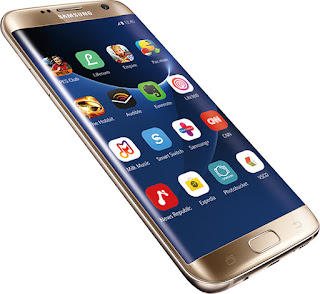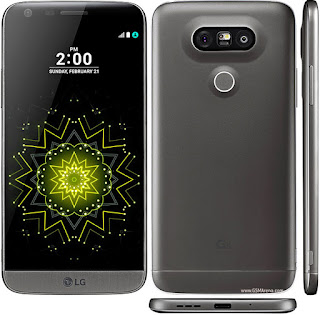Top 5 smartphone in 2016
1. Samsung Galaxy S7 Edge
The Galaxy S7 Edge has a gorgeous larger curved screen and
larger battery than the otherwise identical standard S7. It really is something
special. The extra navigation tools can be useful when used judiciously.
Positive side:-
Looks and feels amazing
Curved screen feels more useful
Strong performance
It's mostly waterproof!
Negative side:-
Slight plastic feel, should be metal
Slightly underwhelming battery
No must-have Edge apps
Expensive
2. Samsung Galaxy S7
One of the other major changes in terms of design this time
around is electing to go with a significantly larger battery than before.
Compared to most other aspects of smartphone technology, battery technology is
a more mature field and improves as a slower pace, so the tradeoffs made here result
in a thicker device and increased weight relative to the Galaxy S6. However, as
we’ll soon see Samsung has made a number of changes in the industrial design
which help to mitigate these issues.
Meanwhile, with the Galaxy
S7 generation, Samsung has further blurred the line between the Galaxy S
lineup and the Galaxy note. The Galaxy S7 edge is a 5.5-inch device - fully
into the phablet territory - and only 0.2 inches smaller than the 5.7"
Galaxy Note5. This means that the two Galaxy S7 phones are now more
significantly differentiated than with the Galaxy S6 generation, where the
difference amounted to the dual-edge display and a slightly larger battery. Now
the Galaxy S7 edge is larger, ever so slightly heavier, and contains a battery
with 20% more capacity than its base Galaxy S7 brethren.
The final change of note in the Samsung Galaxy S7/S7 edge is the
camera. With the Galaxy S6 review it was hard to avoid wondering why Samsung
didn’t bother to integrate a camera with larger pixel size to improve low light
performance, especially when camera was such a significant part of the Galaxy
S6 design story with the noticeable camera hump. For the Galaxy S7, Samsung has
gone ahead and done just this: the pixel size is now 1.4 micron which should
significantly increase the number of situations where the image quality is
limited by shot noise rather than image sensor noise. And to top things off the
camera hump has now been almost entirely eliminated.
Positive side:-
Improved, waterproof design
Fantastic screen and power
Stunning looks
Great camera experience
Negative side:-
High price
Fingerprint magnet
TouchWiz still has some quirks
Poor speakers
3. HTC 10
Compared to last year’s One M9 flagship, there are a couple
of major differences here.
There’s now a capacitive home key sitting below the display
that isn’t so much of a button but a touchpad. Like pretty much every
worthwhile Android phone this year it features a fingerprint scanner inside,
but coming from the Galaxy S7 it feels strange not to get get that satisfying
‘click’ when I press down.
HTC has also switched to capacitive Back and Recent Apps
keys, as opposed to on-screen versions, and these sit either side of the home
button. It’s all down to personal preference whether you prefer physical or
virtual buttons, but it does free up that extra bit of screen real estate. It’s
the precision, though, that wins it for HTC. Everything is symmetrical, with
the headphone jack, camera sensor and USB-C port on the bottom, all in line
with each other. I would have preferred to see that headphone port on the
bottom, but that’s just a minor quibble.
Positive side:-
Great design
Great audio quality
Best selfie camera on the market
Really fast charging
Negative side:-
Camera not impressive
Boomsound not great
4. OnePlus 3
The OnePlus 3 fits a 5.5-inch screen into a chassis that's
152.7mm tall and 74.7mm wide. There's almost no bezel at all on the screen's
long edges. The handset is just 7.35mm thick and weighs 158g. These are
pared-down dimensions, and it's no wonder that the camera lens protrudes a
couple of millimeters from the back of the chassis as a result.
The high build quality carries over into the side buttons:
the power button is on the right edge and the volume rocker on the left, and
both are firm and responsive.
Above the volume rocker is a welcome feature carried over
from the OnePlus 2 -- the Alert Slider. This has three positions corresponding
to all, priority or no notifications. The slider needs a fair push to move it,
so there's no danger of accidentally making selections when the phone is in a
pocket, and it gives a little click when pushed into position. The click is a
small thing, but many will feel it's a premium-grade feature. The slider's
pocked finish makes it easy to find just by touch, and I was able to switch
between modes without taking the handset out of a pocket.
Positive side:-
Premium design
Affordable price
Negative side:-
No microSD slot
Camera could be better
5. LG G5
Despite the Qualcomm Snapdragon 820 SoC having been around
for a while now, the LG G5 is only the second smartphone officially available
in India to be based on it, following the Xiaomi Mi 5 (Review). Upcoming
products from HTC and Asus will also be powered by the Snapdragon 820. This is
currently Qualcomm's flagship SoC, and is among the most powerful smartphone
processors available today.
There's also 4GB of RAM, 32GB of internal storage
(expandable by up to 200GB using a micro SD card), Wi-Fi a/b/g/n/ac, and 4G
connectivity on both TDD Band 40 and FDD Band 3. You get USB 3.0 with a Type-C
connector, and a 2800mAh battery. Also included is support for USB-on-the-go,
along with various sensors including a compass, barometer and color spectrum
sensor. On the audio front, there's Bluetooth 4.2 connectivity, along with
support for A2DP and aptX HD.
The only real weakness in the specifications is the fact
that the phone has only 32GB of internal storage at a time when competing
products are offering 64GB. Although there is a micro SD slot, it's hybrid,
which means that you have to choose between a second SIM and extra storage
space. A lot of users need that second SIM, which means they're effectively
limited to the 32GB of onboard storage despite the high price.
Positive side:-
Super performance
Useful wide angle camera
Negative side:-
Questionable design
Battery could be better





